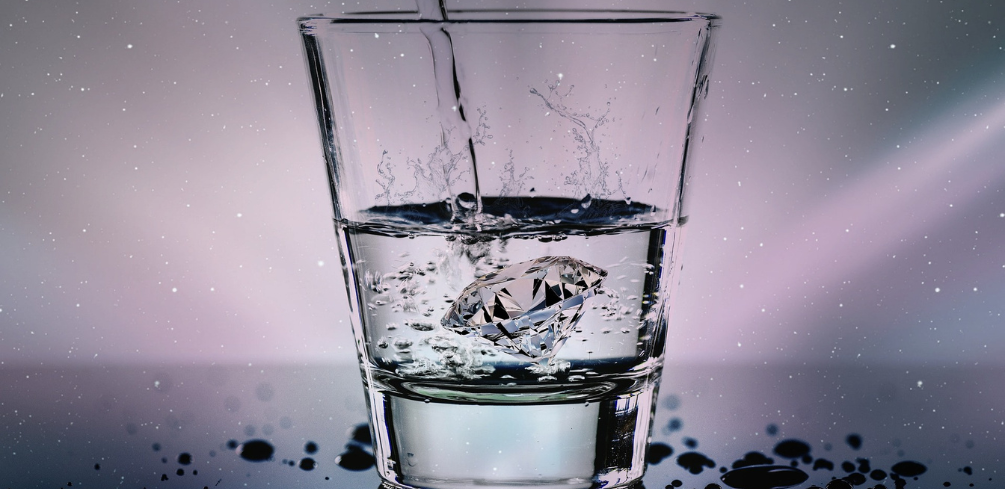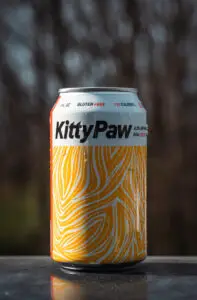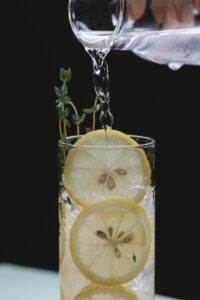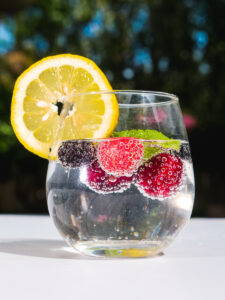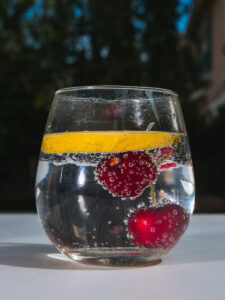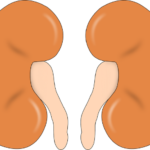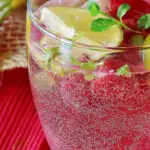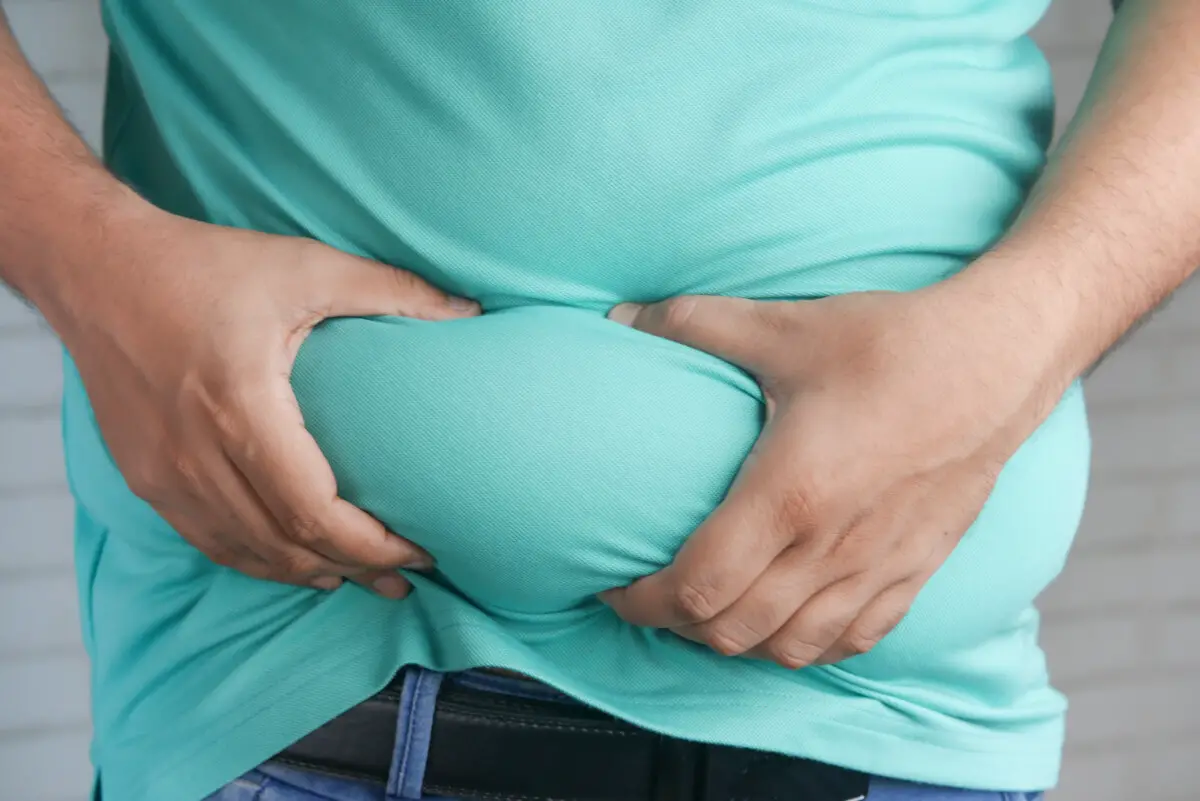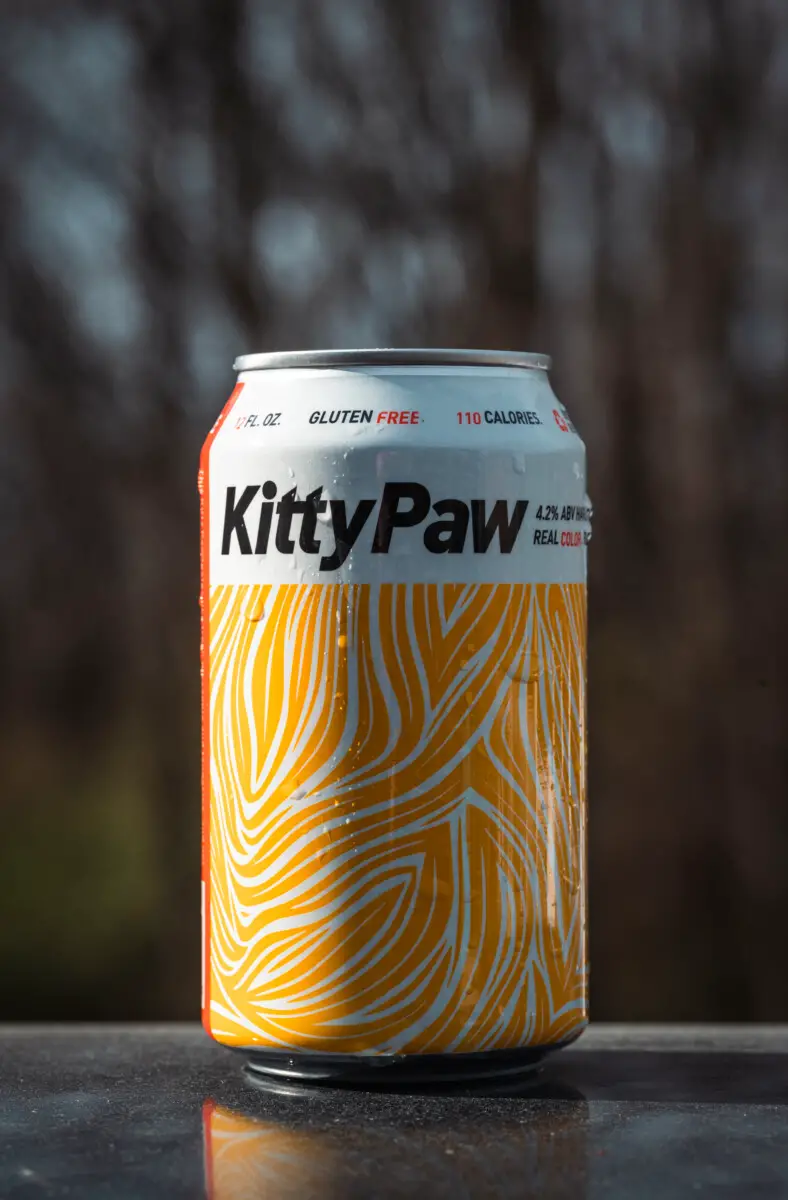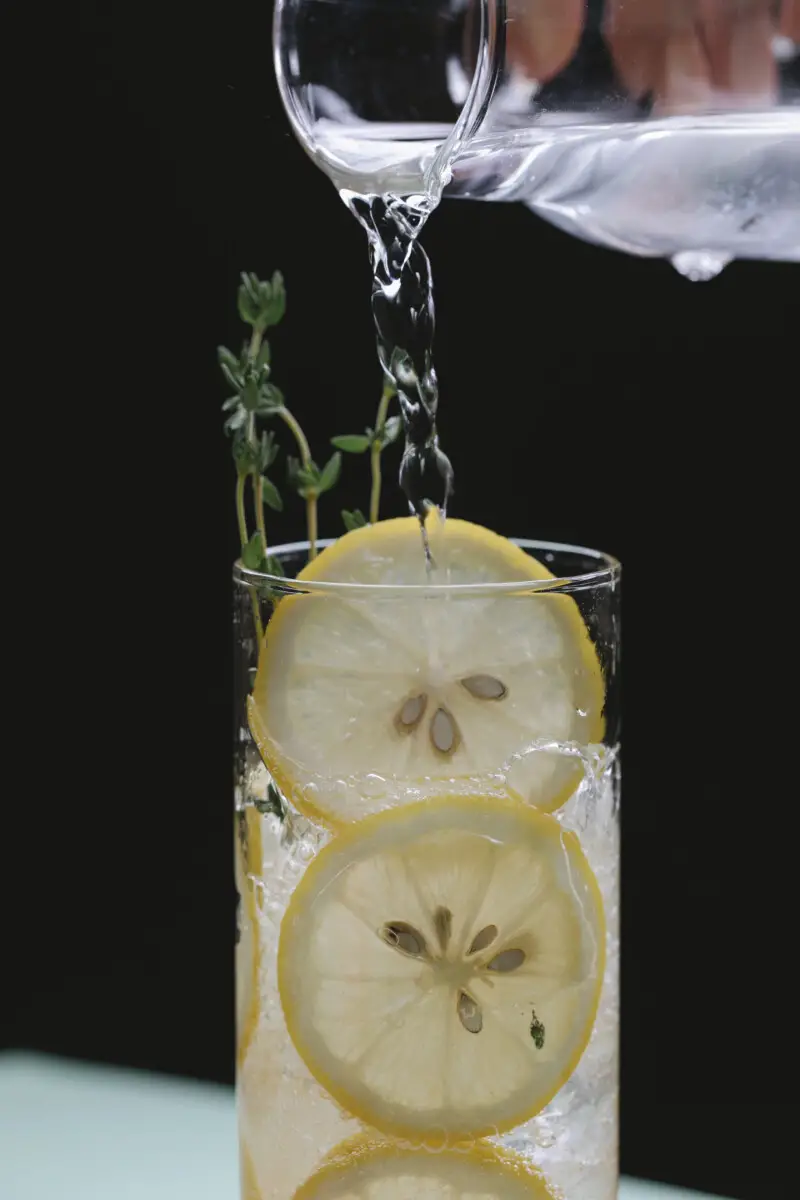Amazon Affiliate Disclaimer
As an affiliate, we earn from qualifying purchases. We get commissions for purchases made through links in this post.
You’re probably familiar with sparkling water—it’s carbonated water that comes in a variety of flavors. But what you may not know is that sparkling water is actually good for you!
In this post, we’ll explore the benefits of sparkling water and why you should start drinking it today.
What Exactly Is Sparkling Water?
Water is made of hydrogen and oxygen, making it both essential for life and calorie-free. Carbon dioxide is frequently added to sparkling types to produce bubbles and make them fizzy.
To put it simply, sparkling water is water that has been pressure-infused with carbon dioxide gas. A fizzy beverage is created as a result, which is also referred to as carbonated water, soda water, seltzer water, fizzy water, and club soda.
Depending on the source, the technique of carbonation, and the presence of additives like sugar, sweetener, salt, or flavorings, a glass of sparkling water will have a different flavor and composition. With the exception of seltzer water, carbonated waters often have salt added to enhance flavor. Other minerals can occasionally be present in very small levels.
Although some producers increase the carbon dioxide in their sparkling mineral water to make it fizzier, sparkling mineral water is naturally carbonated at the source. This water, which is typically generated from underground springs, contains minerals like calcium, sulfur compounds, and magnesium. They are also frequently carbonated.
Sparkling mineral waters that are naturally produced, like Perrier and San Pellegrino, are distinct. Regular sparkling water lacks these minerals, thus to make bubbles, carbon dioxide is infused into the water at high pressure and low temperature, which causes the carbon to dissolve in the water. Bubbles are produced when carbon dioxide escapes and the temperature and pressure are elevated.
Types Of Sparkling Water
Sparkling water is just your basic artificially-carbonated water. However, some varieties come with natural fruit flavors and/or sugar. Although the U.S. Food and Drug Administration officially distinguishes between seltzer and sparkling water depending on their carbonation methods, they are essentially the same for consumer use.
Mineral water, as discussed above, is naturally carbonated water that contains minerals like magnesium and calcium and is obtained from a spring or well.
Club soda, on the other hand, is made with additional minerals like sodium bicarbonate and potassium sulfate. Some brands also include high-fructose corn syrup or sugar on their waters.
Tonic water is a type of carbonated water that also contains sugar or high-fructose corn syrup, as well as the bitter substance quinine.
So, Is Sparkling Water Good For You?
A daily intake of about 6 to 8 glasses of water is advised, though individual needs may differ. Water adds to health. Due to the minerals in mineral water and how easily we may absorb them, there may be additional advantages.
The good news is that sparkling water is actually a healthier option than ordinary soda if you’ve switched to it and are now worried that you’ve merely traded one unhealthy habit for another. You’ve made a wise decision by switching to sparkling water instead of your previous beverage, as long as there are no added sugars.
Sparkling water is frequently just water, which is obviously essential for good health. Despite this, there are a few distinct varieties of sparkling water, and as was mentioned above, not all of them are made equally.
Limit your consumption of tonic water, but feel free to indulge in sugar-free seltzers and mineral waters. In addition to having extra sugars, too much consumption of sparkling water can upset your stomach. It might even give you migraines and other unpleasant side effects.
Benefits Of Sparkling Water
You are aware that carbonated water is healthier for you than sweetened juice, soda, and energy drinks. But what exactly makes sparkling water so much better, other than the fact that it doesn’t contain sugar?
It aids with hydration.
One advantage stands out and needs to be emphasized again: hydration. It’s okay to substitute a few glasses of regular water for sparkling water if you’re struggling with consuming enough water during the day. Sparkling water is just as hydrating as its bubble-free version. But keep in mind, no added sweets!
You experience satiety from it.
Sparkling water consumption may cause a temporary, rapid rise in satiety or fullness. According to several researchers, carbonated water has a longer-lasting satiating effect than plain water and may even keep food in your stomach longer.
It could ease constipation.
According to one study, consuming sparkling water for two weeks helped persons with post-stroke constipation significantly. Another study discovered that indigestion sufferers received comfort from sparkling water.
It makes the switch from sugary drinks easier.
Sparkling water may be the key to tricking your brain out of harmful habits if you’re attempting to stop drinking soda or cut back on daily lattes. Even cucumber, fruit, and herbs can be used to improve the flavor of sparkling water.
While switching from sweet beverages to water might be challenging, flavored seltzers and sparkling water can be helpful. Water is healthier than calorie-dense beverages with added sugar, whether it is plain or carbonated.
Does Drinking Sparkling Water Have Any Negative Effects?
Sparkling water has the potential to erode dental enamel because it becomes more acidic when it is carbonated, but you would need to drink a lot of it for this to be a problem. Studies indicate that sparkling water, particularly mineral water, is a significantly healthier alternative to fizzy soft drinks.
Another urban legend states that carbonated beverages weaken bones, however sparkling water is exempt from this claim. There is no evidence to support the notion that sparkling water devoid of salt or sugar is harmful to our health.
However, you should be mindful that if you buy water in plastic bottles, the plasticizers in the bottles could leach into the water if the bottles are stored in sunlight or at high temperatures. These include both carcinogens and substances with oestrogenic effects.
Conclusion
Sugar, artificial sweeteners, caffeine, and other chemicals might be present in sparkling water. The simplest, most straightforward variety, made up only of carbonation and water, is, however, the best kind.
There aren’t many problems to be concerned about as long as you choose kinds that are free of caffeine and sugar. There is not a lot of evidence to support the claim that drinking sparkling water is unhealthy.
In other words, sparkling water only counts as healthy if it is free of other additives. Feel free to consume all of the fizz you want as long as you stick to the basic kind. However, as with anything, it is recommended to consume it in moderation and should not be viewed as a long-term replacement for plain, old water.
Read also:
- Embracing the Essence: Discovering Natural Mineral Water Sources

- Nourishing the Soul: Mineral Water for Enhanced Digestive Wellness

- Sparkling Mineral Water: Effervescence for the Soul

- Revitalize Your Day: 7 Tips for a Refreshing Hydration Experience with Mineral Water

- Mineral Water Benefits: Exploring the Health Benefits of Drinking Mineral Water

- How to Choose the Healthy Drinks with Mineral Water: Refreshing and Nourishing Options

Please be careful and use at your own risk
None of the authors, contributors, administrators, or anyone else connected with Water Exotic, in any way whatsoever, can be responsible for your use of the information contained in or linked from these web pages.

